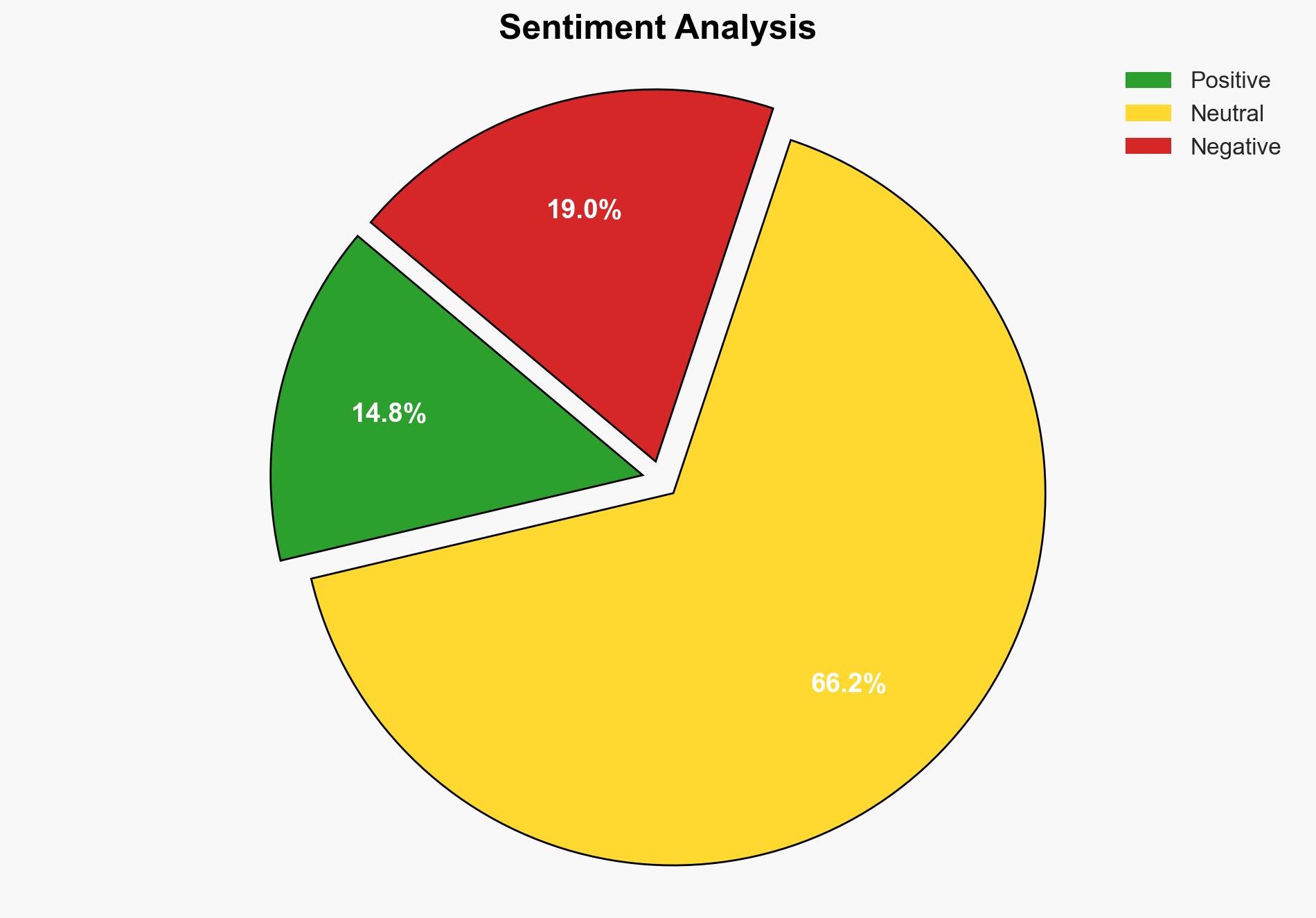Trumps Latest Target Foreign Scholars – Inside Higher Ed
Published on: 2025-03-21
Intelligence Report: Trumps Latest Target Foreign Scholars – Inside Higher Ed
1. BLUF (Bottom Line Up Front)
Recent actions by immigration authorities have targeted foreign scholars and students, particularly those of Palestinian descent, under the current administration’s policies. These actions have raised concerns about academic freedom and the potential suppression of dissent. The strategic implications include strained international academic relations and potential impacts on global research collaboration. It is recommended that stakeholders engage in dialogue to address these issues and consider policy adjustments to safeguard academic freedoms.
2. Detailed Analysis
The following structured analytic techniques have been applied for this analysis:
General Analysis
The arrest and potential deportation of Mahmoud Khalil, a recent graduate of Columbia University, highlight a broader strategy by the administration to suppress dissent among visa holders and green card carriers. This strategy appears to target individuals based on political beliefs and participation in protests, particularly those related to Palestinian causes. The widening dragnet now includes faculty members, postdoctoral fellows, and researchers, raising alarms about the erosion of academic freedom and the role of institutions in global research and scholarship.
3. Implications and Strategic Risks
The targeting of international scholars poses significant risks to national security and regional stability by potentially alienating key academic partners and undermining trust in U.S. institutions. Economic interests are also at risk, as international collaborations contribute significantly to research and development. The perception of arbitrary enforcement could deter future international students and scholars, impacting the U.S.’s position as a leader in global education and innovation.
4. Recommendations and Outlook
Recommendations:
- Engage in diplomatic efforts to reassure international academic partners and address concerns about academic freedom.
- Review and potentially revise immigration policies to ensure they do not inadvertently suppress legitimate academic and political expression.
- Enhance transparency in the enforcement of immigration laws to build trust among international scholars and students.
Outlook:
In the best-case scenario, policy adjustments and diplomatic engagement could restore confidence in U.S. academic institutions and maintain robust international collaboration. In the worst-case scenario, continued targeting could lead to a decline in international student enrollment and collaboration, diminishing the U.S.’s academic and economic standing. The most likely outcome is a mixed response, with some improvements in policy but ongoing challenges in balancing security concerns with academic freedom.
5. Key Individuals and Entities
The report mentions significant individuals and organizations, including Mahmoud Khalil, Isaac Kamola, Momodou Taal, and Teresa Manning. These individuals are central to the events described and reflect the broader implications of the current administration’s policies on academic freedom and international collaboration.





